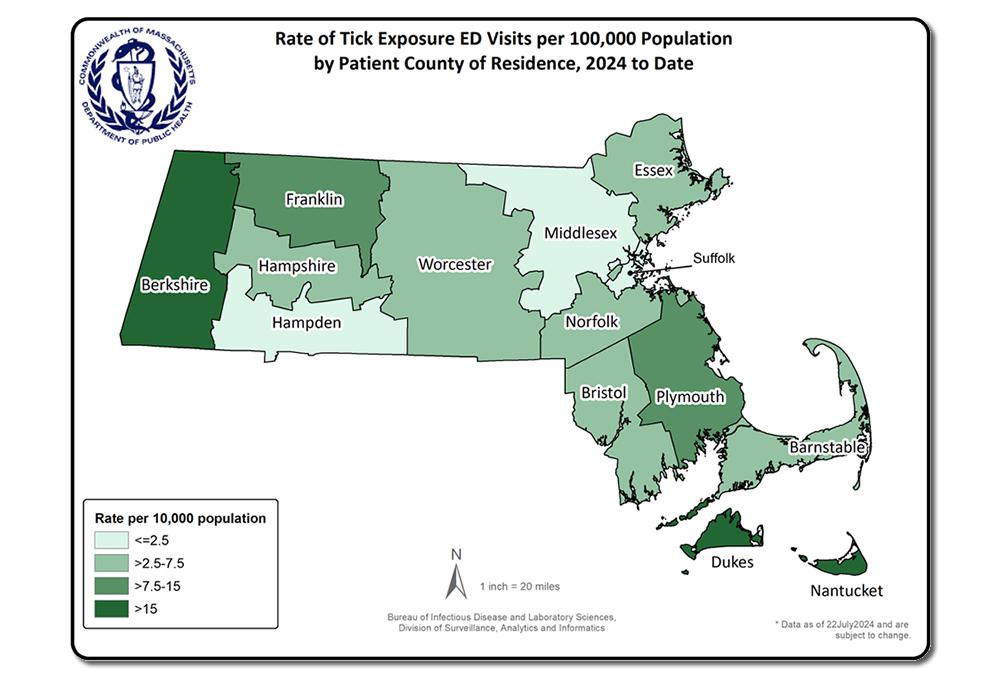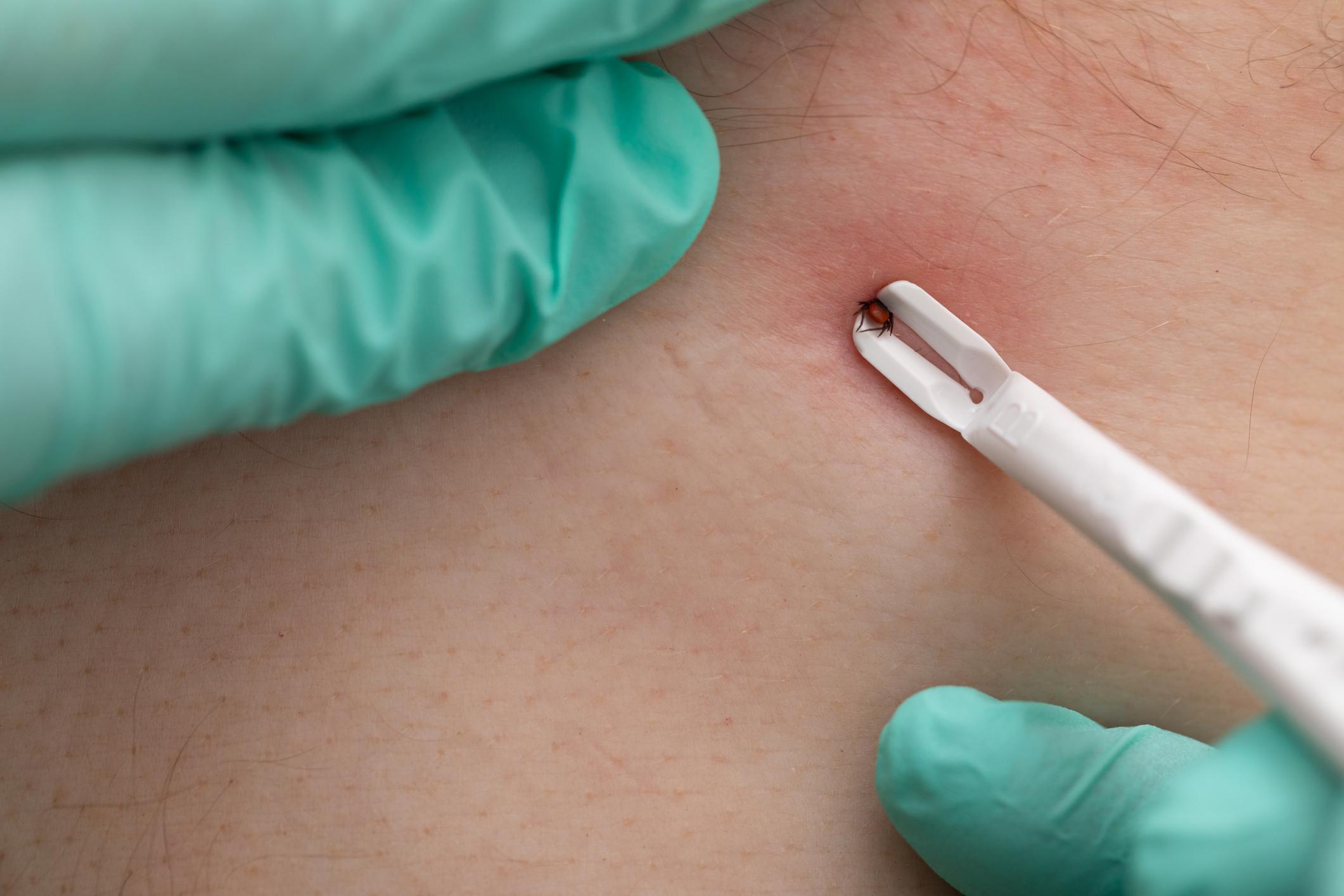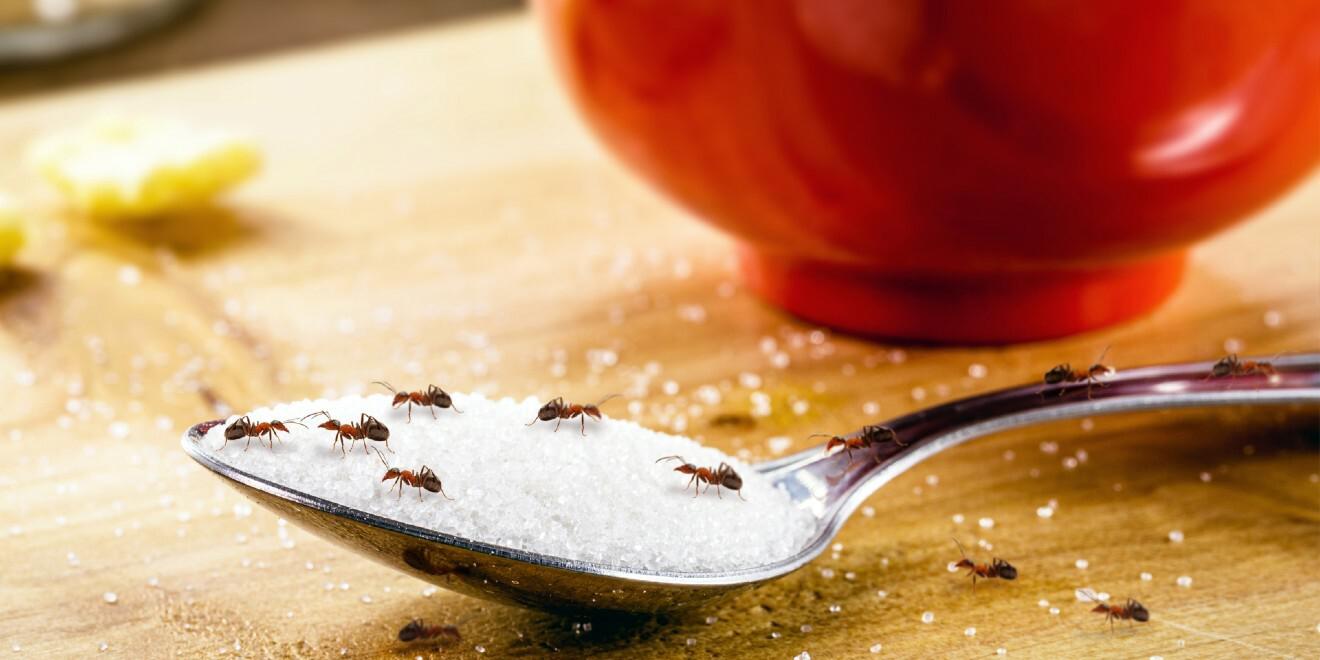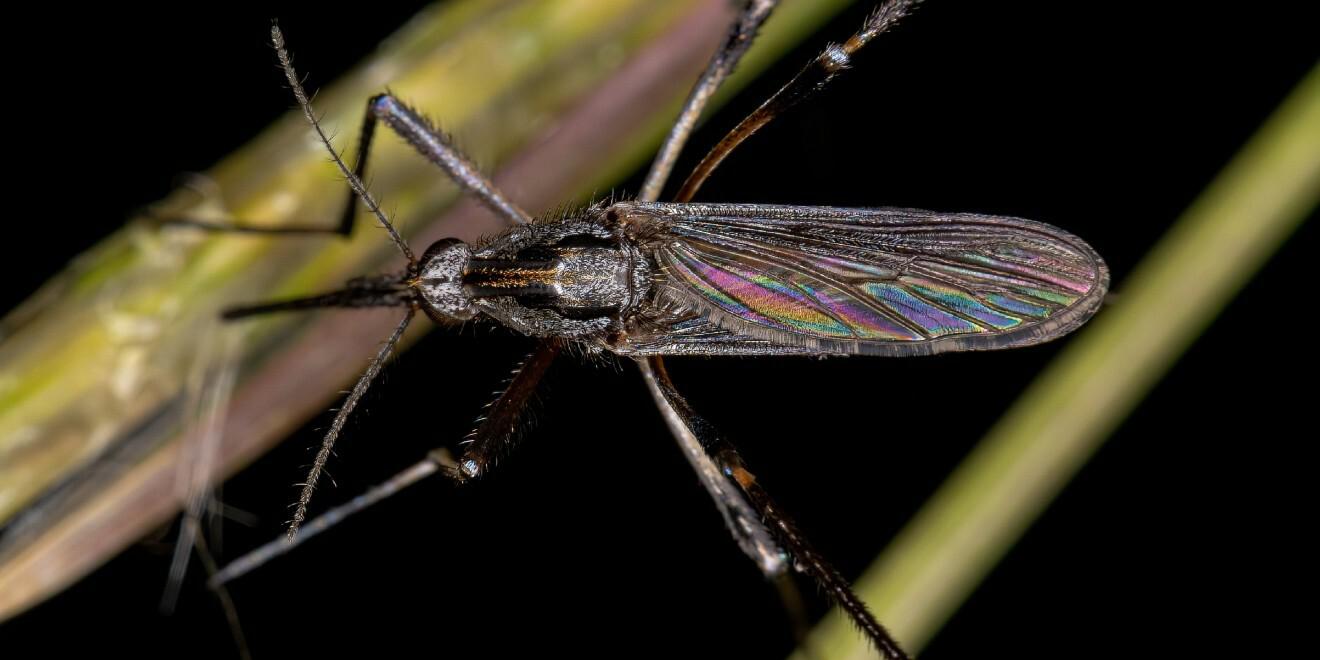Increased Risk for Tick Exposure in the Fall in Massachusetts
Posted by Mosquito Squad
August 29, 2024

Would you believe your risk for tick exposure in Massachusetts spikes in October and November?
Perhaps if you are a longstanding resident of Massachusetts, you understand tick exposure risks well into the fall season. Many hikers and outdoorsy types have unwittingly carried a tick into their home or found a tick attached to themselves or a pet during the fall season. If you are not in the know about the risks for encountering autumnal ticks in Massachusetts, we implore you to familiarize yourself with times of peak tick bite risk and take action to decrease your chances of said risk.
Massachusetts Tick Exposure Emergency Department Visits
Per the graph below, you can see that through June of 2024 (in dark green), Emergency Department visits due to tick bites clearly trended closely with the two prior years. We notice that tick emergence begins in earnest around March, peaks in the summer, and once more in October and November. While the three years are generally similar, exact timing is wholly dependent on weather conditions.

Citation: Massachusetts Department of Public Health, Bureau of Infectious Disease and Laboratory Sciences. Tick Exposure and Tick-borne Disease Syndromic Surveillance Report, June 2024. http://www.mass.gov/eohhs/gov/departments/dph/programs/id/
2024 ED Tick Bite Visits Per 10,000 in Population By Patient County
The second graph provided by BIDLS offers insight through June of 2024, outlining how many Emergency Department visits occurred per 10,000 in population, by the patients’ county of residence. Bristol and Plymouth Counties represent between 2.5 - 7.5 and 7.5 - 15 ED tick exposure visits per 10,000 in population, respectively.

How Prevalent Are Tick-Borne Illnesses in Bristol and Plymouth Counties?
Very much so! Bristol County had 90 confirmed cases of tick-borne illnesses through the first half of 2024. Plymouth County reported 119 during that same period. These two counties represent the highest incidences of confirmed tick-borne illnesses through June of 2024, out of every county in the Commonwealth.
Citation: Massachusetts Department of Public Health, Bureau of Infectious Disease and Laboratory Sciences. Tick Exposure and Tick-borne Disease Syndromic Surveillance Report, June 2024. http://www.mass.gov/eohhs/gov/departments/dph/programs/id/
Why is There a Second Spike in Tick Exposure in the Fall?
The tick life cycle dictates that as the weather warms in early spring, their annual emergence will begin. The means that tick eggs will begin to develop into larvae, larvae into nymphs, and emerging adult females lay new masses of tick eggs. The emergence of ticks and their very active spring and summer season are common knowledge, and during those months, your biggest threat is being bitten by a nymph tick, the most rampant spreader of Lyme disease.
But why this second round of activity in the fall? Adult ticks are running unchecked during the late summer and fall, mating before the winter season. Adult females, who have successfully mated, are out for blood in the fall. Their goal is to obtain their final blood meal in autumn, before burrowing beneath leaves and various ground litter for their season of diapause. Next spring, these adult ticks will lay their egg masses and die. Masses is the most appropriate description for tick eggs, as adult females can lay up to 2,000 at a time!
Did you know that diapause is not the same as hibernation? Ticks do not simply sleep during winter. They enter a state of true dormancy, in which their progression into the next life phase completely terminates.
The Recommended Course of Action Regarding MA Tick Encounters
The collective Commonwealth of Massachusetts is at risk for tick bites from springtime through fall. While some areas experience higher reports of tick exposure than others, your chances are never zero. Therefore, the BIDLS urges that people, “take recommended steps to reduce the chance of being bitten.”
Not every tick bite will make us sick, but vigilance in decreasing our chances of being bitten is the single best way to help allay transmission of tick-borne illnesses in Massachusetts. This means taking precautions away from home, such as wearing long sleeves and pants while working or recreating outdoors. According to the CDC, It is also advisable to treat hiking, hunting, or camping gear and clothing with 0.5% permethrin; or purchase clothing and gear that has been treated by the manufacturer.
The CDC additionally recommends at-home tick control measures.
Extend Your Bristol and Plymouth County Tick Control Through Fall
Mosquito Squad of Southeastern Massachusetts is pleased to offer solutions to your end-of-year tick problems with our two-pronged approach to fall tick control. This includes applying our tried-and-trusted barrier treatment, and following up with tick control granules, which provide 90 days of efficacy.
Our tick control granules are not simply long-lasting, but they also treat ticks in all stages of life, hitting them where they live and breed, effectively interrupting the tick life cycle.
Did you know that it takes as little as 15 minutes of tick attachment for transmission of Powassan, a rare and potentially fatal tick-borne illness?
Search tick control near me and choose Mosquito Squad.
Ticks are surviving and continue to thrive throughout Bristol and Plymouth County. We hope that you will choose Mosquito Squad of Southeastern Massachusetts for all your North Attleboro, Hanover, Rochester tick control needs. We offer Bristol and Plymouth County tick control to help you limit your chances of an unwanted tick encounter any time of year.
Call (774) 234-4611 for a complimentary consultation about our tick control service. You can also get in touch with us by filling out our form online.















